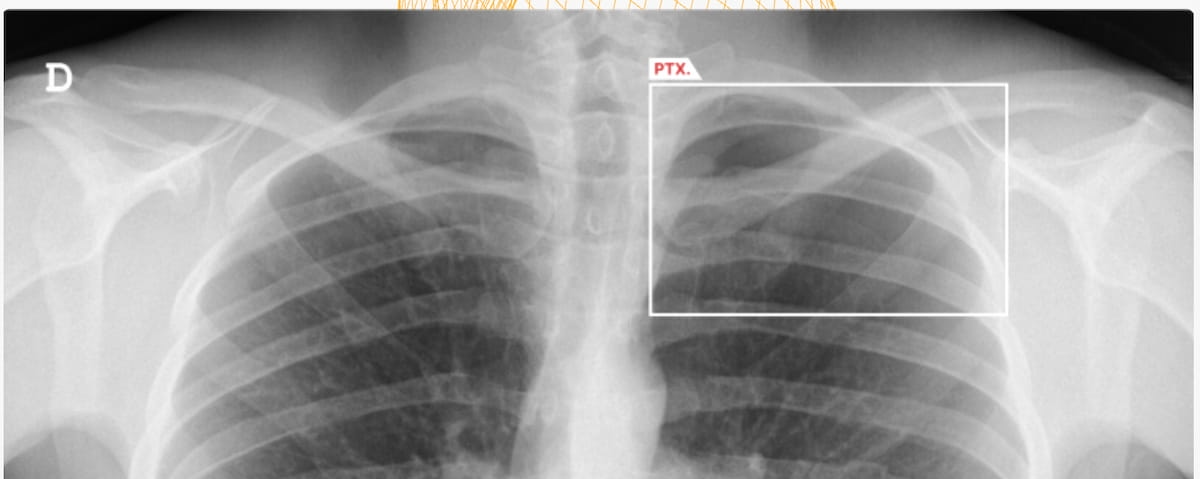FDA Clears AZchest AI Software for New CXR Applications
The AI-powered AZchest CXR software reportedly offers 93.79 percent sensitivity and a 98.57 percent AUC for pneumothorax.
The Food and Drug Administration (FDA) has granted two 510(k) clearances for the artificial intelligence (AI)-enable software AZchest for chest X-rays (CXRs). In addition to lung nodule detection, the AZchest software has been cleared for triage of cases involving pneumothorax or pleural effusion.
Recent research revealed 93.79 percent sensitivity and a 98.57 percent area under the receiver operating characteristic curve (AUC) for detection of pneumothorax with AZchest, according to AZmed, the developer of AZchest. The company also noted that the AI software has a 91.34 percent sensitivity and 98.3 percent AUC for detecting pleural effusion.
Here one can see the use of the AI-powered software AZchest. The software recently garnered FDA 510(k) clearances for triage of pneumothorax and pleural effusion, and lung nodule detection on chest X-ray (CXR). (Image courtesy of AZmed.)

For lung nodule detection, AZmed said AZchest demonstrated 88.47 percent sensitivity and 82.94 percent specificity as a standalone software. In a separate multi-reader, multi-case study, adjunctive use of AZchest increased sensitivity for lung nodules on CXR by 10 percent, according to AZmed.
"We are proud to add two new FDA clearances to our portfolio. Our deep learning algorithms are designed to rapidly and accurately detect abnormalities, thereby ensuring that critical cases are flagged for clinical review promptly," said Julien Vidal, the CEO of AZmed.
Newsletter
Stay at the forefront of radiology with the Diagnostic Imaging newsletter, delivering the latest news, clinical insights, and imaging advancements for today’s radiologists.
Stroke MRI Study Assesses Impact of Motion Artifacts Upon AI and Radiologist Lesion Detection
July 16th 2025Noting a 7.4 percent incidence of motion artifacts on brain MRI scans for suspected stroke patients, the authors of a new study found that motion artifacts can reduce radiologist and AI accuracy for detecting hemorrhagic lesions.